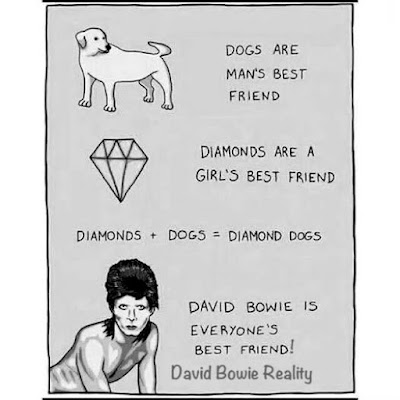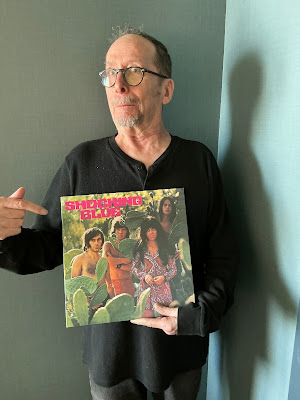That chore completed, let us stipulate that said list was compiled in 2006, and thus there's nothing on it by, say, fashionable contemporary mediocrities like Chappell Roan or Morgan Wallen.
And yes, I think we can all agree that most of the songs listed therein do, in fact, suck.
That said, I think it's kinda jive that there's nothing on it pre-Beatles; apparently the people at Blender either believed contemporary music as we know it began in 1965 or else they thought there was no crap whatsoever in the 50s.
Yeah, right.
But speaking of the Fabs, I was also a little irked to note the presence of "Ob-La-Di, Ob-La-Da" at number 48. Which, whatever your opinion of the song musically -- I think it's charming -- displays a certain, er, ignorance as to its historical context and significance.
As you can see from this piece from MOJO, which I originally posted after it ran in their September 2008 issue (not coincidentally the 40th annniversary of The White Album).
That summer, race was a much bigger story than the Beatles.Between starting "Ob-La-Di, Ob-La-Da" in March in Rishikesh and the first attempt to record it in Abbey Road on July 3, Conservative Shadow Defence Secretary Enoch Powell gave the notorious "Rivers of Blood" speech on April 20, 1968 (which would have been Hitler's 79th birthday). In it, he prophesied a racial apocalypse in Britain if immigration from the former Empire continued. It was headline news, provoking protests both pro and anti.
So when Paul McCartney wrote what he intended to be a Number 1 hit whose male lead was clearly to be identified as West Indian ("Desmond is a very Caribbean name"), set to music that hybridised British music hall and a ska beat, how could he not be making a point? McCartney was in the business of making points in a publically palatable style: he'd written the Beatles previous single A-side, "Lady Madonna," in solidarity with women's daily struggle. The inspiration for "Ob-La-Di, Ob-La-Da" came from a citizen of a former British colony typical of those in the Powellite firing line. Born Jimmy Anonmuogharan Scott Emutakpor in Nigeria, jazzman Jimmy Scott came to England in the '50s, for a while playing congas in Georgia Fame and the Blue Flames; he met McCartney in Soho's Bag O'Nails club. His Yoruba catch-phrase, 'ob-la-di, ob-la-da,' meaning 'life goes on', sparked a hit chorus just as Ringo's stray catch-phrase 'a hard day's night' had with Lennon four years before. And like that 1964 smash, McCartney's new song celebrated workaday romance -- but whose folksiness pictured a friendly face of Britan's controversial new arrivals in a familiar British street setting, the West Indian lilt giddying up a public bar knees-up.
The old joanna [cockney slang for piano -S.S.] intro came courtesy of John Lennon whose "fresh attitude," according to Macca, "turned the whole song around" after it had become bogged down in repeated takes with Ringo and George that totalled 42 hours over seven days.
Vetoed as a single by the other three -- all that effort and ill-temper for "granny music" was their verdict -- the song went to Number 1 anyway as covered by Marmalade, a better version by Leeds-based West Indian musicians The Bedrocks having just scraped into the Top 20.
And Jimmy Scott? He played congas on an early take (Anthology 3), and McCartney later settled a legal bill for him in return for dropping a claim for royalties on the song. Later he joined UK ska revivalists Bad Manners, in 1986 contracting pneumonia on tour in the US and dying after being held for hours naked when strip-searched by immigration officials at Heathrow Airport. McCartney really had a point, it seemed. But not even his fellow Fabs got it. -- Matt Snow
I must admit, that whole story was news to me when I read it in MOJO.
And hey -- its sudden relevance to current events here in the USA will escape no one's notice. 😎
In any event, I've always liked the record, as unfashionable as it may have been to say in rock crit circles, and it's certainly more important than the snobs at Blender gave it credit for.










